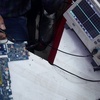AC Repairing Course opens doors to mastering essential troubleshooting skills. This specialized training dives into the intricacies of AC systems, teaching the ins and outs of diagnosing and fixing issues. From comprehending basic components like the compressor and evaporator coil to practical techniques such as using multimeters, the AC Repairing Course ensures a holistic learning experience. With a focus on hands-on training and real-world case studies, graduates emerge ready to tackle common AC problems. Choose this course for a comprehensive understanding of AC systems and a promising career in the field.
Importance of Troubleshooting Skills
Troubleshooting skills are paramount in the realm of AC Repairing Courses. Proficiency in swiftly identifying and resolving issues is the linchpin for success in mastering AC systems. In an AC Repairing Course, emphasis on troubleshooting is a cornerstone, imparting essential skills for diagnosing and rectifying problems efficiently. The ability to navigate through common AC issues, such as refrigerant leaks or electrical malfunctions, distinguishes a skilled technician. These troubleshooting skills not only ensure optimal system performance but also elevate the credibility and employability of individuals completing an AC Repairing Course, underscoring its pivotal role in shaping competent HVAC professionals.
Understanding Basic AC Components
Before diving into troubleshooting, it's essential to grasp the fundamentals of an air conditioning system. The major components include the compressor, condenser, and evaporator coil. Understanding how these parts work together lays the foundation for effective troubleshooting.
-
Compressor The compressor is like the heart of the AC system, responsible for pumping refrigerant through the entire system. A malfunctioning compressor can lead to various issues.
-
Condenser The condenser releases heat absorbed by the refrigerant, turning it back into a liquid. Issues with the condenser can impact the overall cooling efficiency.
-
Evaporator Coil This component facilitates the heat exchange process, allowing the refrigerant to absorb heat from the indoor air. Problems with the evaporator coil can result in poor cooling performance.
Common AC Issues
Knowing the common problems that AC systems encounter is crucial for any aspiring technician. This section delves into issues such as refrigerant leaks, electrical problems, and airflow obstructions, providing insights into their causes and solutions.
-
Refrigerant Leaks Low refrigerant levels can lead to reduced cooling efficiency. Identifying and fixing leaks is a fundamental skill taught in AC Repairing Courses.
-
Electrical Problems Faulty wiring, capacitor issues, or malfunctioning sensors can disrupt the electrical components of an AC system. Technicians learn how to diagnose and repair these electrical issues.
-
Airflow Obstructions Blocked air ducts or dirty filters can impede airflow, affecting the overall performance of the system. Techniques for identifying and resolving airflow obstructions are covered in-depth.
Significance of Hands-On Training
Theory alone is not sufficient when it comes to troubleshooting. AC Repairing Courses emphasize hands-on training, allowing students to apply theoretical knowledge to real-world scenarios. This practical experience is invaluable for developing effective troubleshooting skills.
Practical Techniques in Troubleshooting
-
Use of Multimeter Technicians uses a multimeter to measure electrical parameters, helping them identify faulty components accurately.
-
Identifying Faulty Components AC Repairing Courses teach students how to identify and replace faulty components, ensuring the proper functioning of the system.
Role of Technology in AC Repairing Courses
Advancements in technology have revolutionized the field of AC repair. Simulation software and virtual labs allow students to practice troubleshooting in a controlled environment, preparing them for real-world scenarios.
-
Simulation Software Simulations mimic real-life situations, allowing students to practice troubleshooting without the risk of damaging actual equipment.
-
Virtual Labs Virtual labs provide a virtual environment where students can interact with different AC system components, honing their troubleshooting skills.
Industry Demand for Skilled AC Technicians
The increasing complexity of air conditioning systems and technological advancements in HVAC solutions have led to a growing demand for skilled AC technicians. Industries now require professionals with comprehensive knowledge of troubleshooting, repair, and maintenance. As businesses and homeowners alike prioritize energy efficiency and optimal climate control, the need for qualified technicians who can address issues promptly and efficiently has surged. This rising demand emphasizes the importance of enrolling in AC Repairing Courses to meet industry standards, ensuring that technicians are well-equipped to tackle the challenges posed by modern air conditioning systems.
Choosing the Right AC Repairing Course
Selecting the right course is crucial for a successful learning journey. Considerations such as accreditation, curriculum, and hands-on experience play a significant role in choosing the best program.
-
Accreditation Ensure that the course is accredited by relevant authorities, validating the quality of education provided.
-
Curriculum A well-rounded curriculum covering both theory and practical aspects is essential for a comprehensive learning experience.
-
Hands-On Experience Look for courses that offer ample hands-on experience, as this is vital for developing proficiency in troubleshooting.
Benefits of Enrolling in an AC Repairing Course
Enrolling in an AC Repairing Course goes beyond acquiring technical knowledge. The benefits include access to industry-standard equipment, networking opportunities, and mentorship from experienced professionals.
Overcoming Challenges in the Learning Process
Learning troubleshooting skills may pose challenges, but perseverance and dedication are key. AC Repairing Courses provide the necessary support and guidance to help students overcome obstacles and succeed in their journey.
Career Opportunities After Completing the Course
Upon completing an AC Repairing Course, a plethora of career opportunities awaits. Graduates can pursue roles as HVAC technicians, service engineers, or even start their businesses, leveraging their newfound skills.
Conclusion
In conclusion, an AC repair course is not just about fixing air conditioning systems; it's about mastering the art of troubleshooting. From understanding basic components to practical techniques and real-world case studies, these courses provide a holistic approach to becoming a skilled AC technician.
FAQs
Q: Can I learn AC repairing without any prior technical knowledge?
A: Yes, AC Repairing Courses are designed to cater to individuals with varying levels of technical expertise.
Q: How long does it take to complete an AC Repairing Course?
A: The duration varies, but most courses can be completed within a few months, depending on the program.
Q: Are online AC repair courses as effective as traditional ones?
A: Yes, many online courses offer interactive simulations and virtual labs, providing an effective learning experience.
Q: What is the average salary of an AC technician after completing a course?
A: Salaries vary, but skilled AC technicians can earn competitive pay, especially with experience.
Q: How can I find the best AC Repairing Course for my needs?
A: Research and consider factors such as accreditation, curriculum, and hands-on experience when choosing a course.


No comments yet